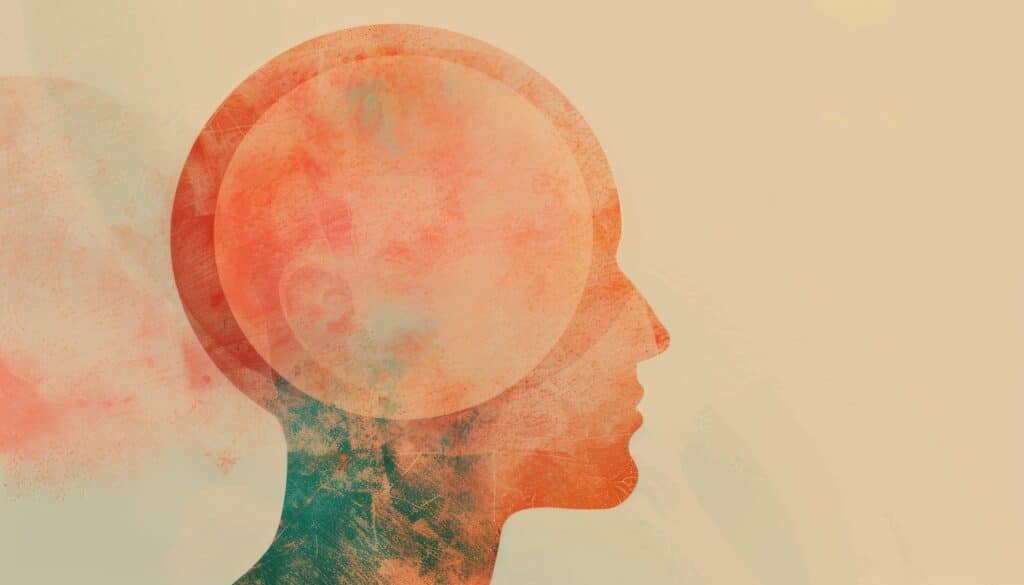Eating disorders and depression are potentially debilitating conditions on their own. When someone experiences both conditions simultaneously, it can become overwhelming. It may not seem fair to carry such a burden, but effective treatments exist—and they can be life-changing.
The symptoms of depression often overlap with those of eating disorders, and it’s not uncommon to struggle with both conditions at the same time.
Here’s what you should know about the connection between eating disorders and depression.
Eating Disorders and Co-Occurring Conditions
A co-occurring condition is when a person is diagnosed with two or more mental health disorders at the same time. Studies show that approximately 80% of people with eating disorders also experience mental health conditions—such as mood and anxiety disorders—in their lifetime.[1]
Some of the most common co-occurring psychological conditions experienced by people with eating disorders are:
- Depression and/or anxiety
- Obsessive-compulsive disorder (OCD)
- Post-traumatic stress disorder (PTSD)
- Substance use disorder (SUD)
Of these conditions, depression is the most common.[1] In people diagnosed with anorexia nervosa, 50-70% also have major depressive disorder. Likewise, depression co-occurs in 50-65% of people with bulimia nervosa.[1]
Why is Depression Common in People with Eating Disorders?
What is it about major depressive disorder that makes it so common among people experiencing eating disorders? It turns out that depression and eating disorders share a number of symptoms.
The same psychological stressors that increase a person’s risk of eating disorders also raise their risk of depression. Depression and eating disorders are connected, but one does not always cause the other. They can exist separately or together.
The risk factors for developing both include:
- Genetics: Research has found that certain genetic factors seen in both anorexia and depression increase the risk of being diagnosed with both disorders.
- Environmental factors: Traumatic experiences, family dynamics, and peer pressure also influence the development of eating disorders and depression.[2]
- Personality traits: Dysfunctional emotion regulation, low self-esteem, and high levels of perfectionism can influence the development of both depression and eating disorders. Difficulty controlling and managing emotions, negative beliefs about self-worth, and self-criticism are all tied to sadness, hopelessness, a negative body image, and body dissatisfaction.[3]
Some of the overlapping symptoms between eating disorders and depression include the following:
- Low self-esteem
- Negative body image
- Changes in appetite
- Weight fluctuations
- Intense fatigue
- Guilt and shame
- Hopelessness
- Isolating oneself from others
- Loneliness
- Suicidal ideation[2]
How Do Eating Disorders Impact Depression and Vice Versa?
Studies indicate a strong link between eating disorders and depression, with each condition negatively impacting the other. When these conditions co-occur, they increase stress on both physical and mental health. Individuals with both conditions experience an increase in psychological challenges, a rise in emotional instability, and a poorer overall prognosis.[3]
Depression can contribute to the development or worsening of eating disorders by affecting a person’s eating habits. Depressive symptoms can cause a decreased appetite overall, but they can also create feelings of hopelessness and loss of control in one’s life. As a result, a person may resort to disordered eating as a way to regain some semblance of control or agency.
The negative thoughts and feelings associated with depression—such as hopelessness and worthlessness—can worsen self-esteem and body image, which are significant factors in the development of eating disorders. Moreover, the emotional consequences of eating disorders—such as guilt, shame, and self-loathing—can intensify existing depressive symptoms.
The physical side effects of eating disorders, like malnutrition and dehydration, are associated with an increased risk of depression. When the body and brain lack essential nutrients, it can cause symptoms like brain fog, impaired judgment, and poor decision-making. Additionally, it can further decrease a person’s appetite when they’re already malnourished. These psychological and physical consequences negatively impact overall mental health and a person’s ability to function.[4]
Eating disorders and depression can reinforce one another, creating a cycle of symptoms and behaviors that is difficult to break. The good news is that there are treatments that address both conditions simultaneously.
Treatment Processes and Outcomes
In people with co-occurring conditions, integrated treatment provides the best chance at lasting recovery. Integrated treatment addresses the eating disorder and depression at the same time and helps disentangle the behaviors and habits that link the two together. Fortunately, the treatment processes used to address eating disorders are also effective in managing mental health conditions like depression.
Cognitive behavioral therapy (CBT)—which helps identify and modify unhelpful thought patterns and behaviors—is highly effective in treating both eating disorders and depression. Doctors may also use medications, such as antidepressants, to address overlapping symptoms.
If a person’s eating disorder is severe and harms their health, they may need medical attention to stabilize their physical health before they can enter a comprehensive treatment program. Once they are physically stable, intensive treatment for their co-occurring conditions can help them take meaningful steps toward recovery—from both disordered eating and depression.
Recognizing the problem and reaching out for help may seem scary, but the right treatment can be life-changing and even life-saving.
Start Your Healing Journey Today
Eating disorders with co-occurring mental health disorders require an integrated, comprehensive treatment approach. Toledo Center for Eating Disorders provides compassionate care and uses time-tested, evidence-based approaches to help guide clients and their families through recovery.
If you’re ready to take the next step in the eating disorder recovery process for you or your loved one, fill out this form or call to speak with someone from our team; we’re ready to help you reclaim your life, your health, and your future.
References
1Comorbidities in eating disorders. (2021, March 22). Psychiatry-Psychopharmacology.com.
2Gillette, H. (2024, January 22). What’s the relationship between anorexia and depression? Healthline.
3Sander, J., Moessner, M., & Bauer, S. (2021). Depression, anxiety and eating disorder-related impairment: Moderators in female adolescents and young adults. International Journal of Environmental Research and Public Health, 18(5), 2779.
4The Bulimia Project. (2023, May 16). Bulimia & co-occurring depression.

